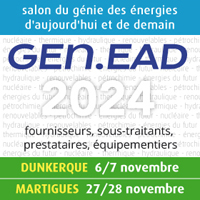avri.
08
2008 | E.ON promotes renewables and CO2-free power generation
* Expanding share of renewables to 24% by 2030
* Nuclear power valuable for CO2-free and secure power generation
* If technology is available: Only new CO2-free coal-fired power plants
* Reducing the specific CO2 emission by at least 50% by 2030
E.ON is uniquely positioned to drive the next phase of the renewables agenda and deliver a sustainable and balanced portfolio for generations to come. This was the key message delivered by E.ON CEO Wulf Bernotat at an event to present the new market unit, Climate and Renewables, in Madrid.
“Energy has to continue to be secure and affordable in the future. Above all, if we want to get to grips with climate change, we have to make sure that its generation is much more climate-friendly. Renewables are going to play a key role. They are CO2-free, independent of any fuel resources and can be profitable in the long-term without any subsidies. This does however require current capacities to be expanded quickly and extensively as well as further technical innovations.”
Bernotat added that only companies with the experience, scale and strength like E.ON are positioned to plan, invest and execute industrial-scale projects to take renewables to the next level.“E.ON has doubled its investment budget into renewables to €6 billion by 2010. This accounts for a good 10% of the entire investment program of around €63 billion by 2010. There is hardly any other company in Europe investing as much in this field as we are today. We are taking our responsibility to the community and our consumers very seriously.”
According to the EU Commission and the German government renewables are to be expanded considerably in the coming years. By 2020 the share in Germany is to amount to 25-30%. Bernotat explained: “But that also means that we have to generate 70-75% from non-renewable sources. As much as we all may like the idea that we will be relying on renewables exclusively one day, we are going to have to be asking ourselves regularly in the years to come how we intend to secure our energy supply. To ensure we keep the lights on across Europe, we are going to need a balanced energy mix for decades to come with nuclear power, coal and gas playing an important role.”
The E.ON subsidiary, E.ON Climate & Renewables has made swift progress since the decision was taken to found the company in May 2007. Since then installed capacity has been increased by acquiring the renewables business of Dong in Spain and Portugal, as well as Airtricity in the US and Canada, and by implementing new constructions projects which increased capacity from around 500MW to now 1,300 MW. Including hydro power E.ON now has renewable generation capacity in excess of around 7,300MW. This marks 12% of a total installed capacity of 60GW. By 2015 capacity will increase to at least 16,000 MW, which is more than double. Frank Mastiaux, CEO of E.ON Climate & Renewables: “The market for renewable energy is growing rapidly. Potential in 2020 is likely to exceed €200 billion. We are currently seeing growth rates per year in excess of 15% in wind, 12% in bio natural gas and 20% in solar energy. At the moment we are in a transition into a new phase. Boutique-scale projects are now increasingly being replaced by industrial-size projects. Our priority at E.ON is therefore to quickly build large and most importantly affordable capacities in our usual high quality. We are not limited to wind power. Our objective is to have all promising renewable energies in one diversified and global portfolio. Given the different stages of technical and economic maturity we need to have strategies for each source. But we are fully dedicated to building on our market position to ensure that we are getting closer to the global leaders by 2010.”
The share of renewables at E.ON – according to an E.ON generation scenario presented in Madrid – could even triple compared to today’s levels to 24,000MW by 2030. This would account for almost a quarter of E.ON’s global electricity generation capacities, which according to the 2030 scenario is to increase to more than 100GW installed power plant capacity. Bernotat: “One of our general climate targets is to cut our specific CO2 emissions by at least 50% against 1990 levels by 2030. We can only achieve this with a broad energy mix in 2030, which is then going to be generating more than 50% of electricity without CO2 emissions”.
In addition to renewables with a share of 24%, nuclear power should contribute 19%. In the future the E.ON generation portfolio is going to continue to include highly-efficient gas and coal-fired power plants. “We are going to be pushing every technical possibility to make electricity from coal-fired power plants CO2-free. If CO2 capture is technically possible and economically feasible no coal-fired power plant should be built from 2020 on without carbon capture technology. By 2030 10% of our generation capacity would then come from CO2-free coal-fired power plants.” Bernotat added that in addition to being climate friendly this energy mix would make a major contribution to ensuring that energy is affordable and secure by being less dependent on fossil resources and ultimately energy imports. Bernotat: “We are going to be carefully monitoring and focusing on the three targets of energy supply: security of supply, climate protection and economic efficiency.”
| |
|
|






  
|